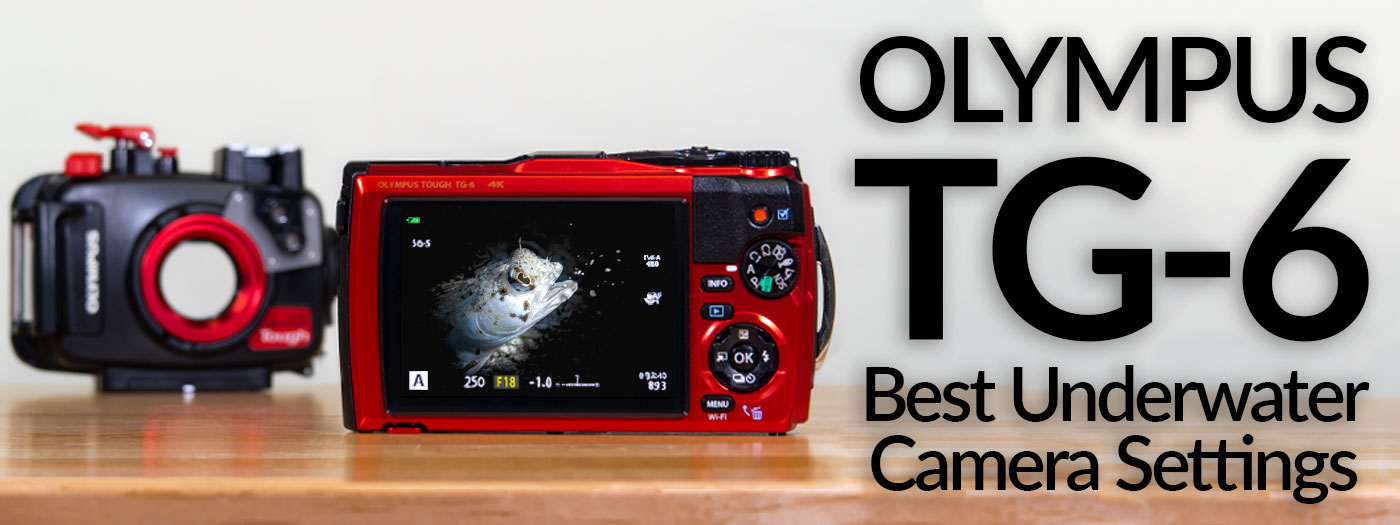I just pulled the trigger on a used TG-6 with housing, tray and a wide lens (listing here). I have a little bit of experience with land photography/videography and post-production, but I know next to nothing about UW photo/video. Help me get started!
Use case
I have two primary goals for this camera:
1. I want to learn and experiment - macro, wide, photos, videos
2. I want to document - videos/photos of anything from training dives/drills to local shipwrecks, to nudibranches and small critters/fish
I'm not expecting award-winning footage, but I want something for my archive, something to show family and dive buddies, and something to learn and improve with.
Local diving conditions
It's dark, green, often murky, cold water diving around these parts. Limited ambient light. No schools of fish and colorful coral reefs. But there are some cool nudies and other medium-to-small sized fish and critters, and good amount of shipwrecks.
Lighting
I have a modest budget, since I saving up for tech and cave training, and since I want to do both video and photo, I'm guessing I should start with some video lights, and keep strobes on the list of things to buy as I progress. I like the idea of buying gear I can grow with (buy once, cry once), but I realize that with my budget and the going rates for high quality underwater lighting I might have to settle for something less optimal. Maybe a cheaper light would still be useful down the road as a focus light, if nothing else?
Am I correct in thinking I would need dual video lights for wide angle shots? Any recommendations for video lights that would fit my use case and the camera? Both US and EU sources are of interest.
Arms/flotation
What kind of arms and flotation do I need to make this rig nice and practical in use?
Books/learning resources
I love learning by reading books, articles, guides. What are the best books I can read for learning UW photography and videography? Preferably in e-book format. Other good resources?
Other tips/tricks?
What do I need to know, as I get started with this? What do you wish you had known when you started? I'm pretty comfortable with my diving ability, and I'm very careful never to disturb/touch the bottom, or any vegetation or life - but other than that I'm open to hearing any good tips you can give me.
Use case
I have two primary goals for this camera:
1. I want to learn and experiment - macro, wide, photos, videos
2. I want to document - videos/photos of anything from training dives/drills to local shipwrecks, to nudibranches and small critters/fish
I'm not expecting award-winning footage, but I want something for my archive, something to show family and dive buddies, and something to learn and improve with.
Local diving conditions
It's dark, green, often murky, cold water diving around these parts. Limited ambient light. No schools of fish and colorful coral reefs. But there are some cool nudies and other medium-to-small sized fish and critters, and good amount of shipwrecks.
Lighting
I have a modest budget, since I saving up for tech and cave training, and since I want to do both video and photo, I'm guessing I should start with some video lights, and keep strobes on the list of things to buy as I progress. I like the idea of buying gear I can grow with (buy once, cry once), but I realize that with my budget and the going rates for high quality underwater lighting I might have to settle for something less optimal. Maybe a cheaper light would still be useful down the road as a focus light, if nothing else?
Am I correct in thinking I would need dual video lights for wide angle shots? Any recommendations for video lights that would fit my use case and the camera? Both US and EU sources are of interest.
Arms/flotation
What kind of arms and flotation do I need to make this rig nice and practical in use?
Books/learning resources
I love learning by reading books, articles, guides. What are the best books I can read for learning UW photography and videography? Preferably in e-book format. Other good resources?
Other tips/tricks?
What do I need to know, as I get started with this? What do you wish you had known when you started? I'm pretty comfortable with my diving ability, and I'm very careful never to disturb/touch the bottom, or any vegetation or life - but other than that I'm open to hearing any good tips you can give me.





